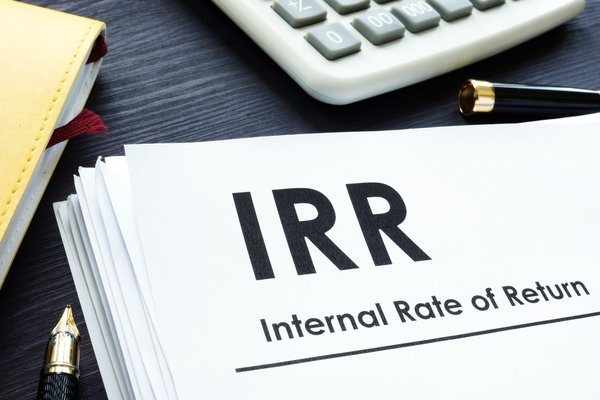If you're selling a commercial building, there's a good chance you'll have to undergo a commercial real estate appraisal. With that in mind, you may be wondering how that process works. We've laid out everything you need to know about conducting an appraisal on a commercial property. You'll learn what a commercial real estate appraisal is, how the process works, and what you can do to bring up the value of your property.

What is a commercial real estate appraisal?
Just like in residential real estate, a commercial real estate appraisal is an unbiased opinion of the value of the property. However, rather than looking at the value of single-family residences or individual condo units, a commercial real estate appraisal is used to determine the value of properties like multifamily housing units, office buildings, or retail spaces.
At their core, appraisals are used to determine what a property will sell for in the current market, but they are also important in underwriting. Lenders generally will not lend more than an asset is worth, so an appraisal helps these lenders determine how much financing they can safely provide.
An appraisal is also a useful tool from an investing perspective. Before you purchase the asset, it can give you an idea of how much you should be willing to pay for the asset in the current market. Additionally, after you have the asset in your portfolio, an appraisal can also help you make decisions about what sort of investments or renovations it makes sense to add to the property.
How is a CRE appraisal different from a residential appraisal?
Though appraisals are used in both commercial and residential real estate, practically the two processes are very different. The values of the properties are calculated in different ways. In residential real estate, appraisers typically use the sale prices of similar properties (comps) to make their determination. Then, they add and subtract value based on the unique features and details the property in question possesses. In contrast, with commercial appraisals, more emphasis is placed on the amount of income the property is able to generate.
Generally, commercial appraisals tend to take longer than residential appraisals because they're more complex. In short, many residential properties are similar to one another, which makes it easy to determine their value on a basis of comparison. However, many commercial buildings are unique, meaning the commercial appraiser will likely need to spend more time figuring out how the various aspects of the property affect its value.
Finally, since commercial real estate appraisals tend to be much more complex than their residential counterparts, they also are much more expensive. While a residential appraisal will typically cost a few hundred dollars, a commercial appraisal can cost a few thousand.
What are the different methods for CRE valuation?
In total, there are four different methods a commercial appraiser can use in order to determine the value of a property.
Cost approach
While the cost approach isn't used very often these days, it can be helpful if a building is particularly unique or brand new. The cost approach determines the value of a property by looking at how much it would cost to reconstruct it from scratch. This method looks at the costs of the land, materials, and labor to determine how much it would cost to construct the same building in the current market.
Commercial real estate appraisers always use the same formula to determine a property's value when they use the cost approach. It is as follows:
Land cost + cost to build new - accumulated depreciation = Property value
This method works by following the assumption you wouldn't pay more for a building then it would cost to construct it from scratch. However, this method works better with newer buildings. The older a building gets, the more room there is for discrepancies in the cost. For example, materials can cost more due to inflation, and it may cost more to bring the building up to meet current building codes.
Income approach
The income approach is by far the most popular valuation method in commercial real estate. With this method of commercial valuation, the appraiser uses common investing calculations, such as net operating income (NOI) and capitalization rate (cap rate), to determine how much income the property should be able to generate in the current market.
The formula used for the income approach is as follows:
Net operating income (NOI) / capitalization rate = Property value
This is typically considered the most accurate method of property valuation. That said, keep two things in mind. On the one hand, the net operating income listed on the pro forma for the property needs to be accurate. If it's inaccurate, the valuation will be inaccurate as well.
On the other, investors will have to find the cap rates of comparable sales to come up with a cap rate for this equation. If there aren't many comparable sales available, it can be hard to come up with a cap rate that makes sense, which can also throw off the accuracy of the valuation.
Sales comparison approach
The sales comparison approach is the method most often used in residential real estate. This method uses comparables, or the sale prices of comparable properties, to determine the valuation of the subject property.
However, as mentioned above, while a residential appraiser will typically have plenty of comparables to choose from, commercial appraisers usually aren't as lucky. To find a comparable property, the commercial appraiser may have to look well outside the current market area, which can make for a less reliable valuation.
For this reason, it's more common to see individual investors, not commercial appraisers, use the sales comparison approach to determine how much they should offer for a particular property.
Gross rent multiplier approach
Finally, there's a gross rent multiplier approach. Again, this method is more commonly used by individual investors than by a professional appraisal practice. It's really more of a back-of-the-envelope, quick-and-dirty method for commercial valuation.
With this method, you look at comparables to find the average gross rent multiplier for the area where the subject property is located. You also need to look at the pro forma for the building to determine the average gross rental income of the property. Once you have those numbers, you can use the following equation to figure out the property valuation:
Gross rent multiplier x annual income = Property valuation
Again, the values you use for the equation need to be accurate in order for the property valuation to be accurate as well.
How to increase the value of a commercial real estate appraisal
The last piece to this puzzle is figuring out how to increase the value of a commercial real estate appraisal. In truth, appraisals are somewhat subjective. Every certified appraiser will have a different opinion of the appraised value of a property. While you can use these suggestions to give the appraisal the best shot of coming out in your favor, there are no guarantees.
Have your documents ready
Usually, after a commercial appraiser comes to view the property, they will do their due diligence and follow it up by doing some research on the property itself. They may ask you to provide copies of several important documents, including building plans and site plans, your current rent rolls, and any current leases. You can speed up the process -- and hopefully increase your valuation -- by having this information on hand so it's ready to go when asked for.
Keep up with building maintenance and improvements
In general, properties in better condition tend to appraise for higher values, so do your best to keep on top of regular building maintenance. If your building is older, making occasional improvements in order to keep it looking up to date will also help.
Add in ways to generate more income
Lastly, since commercial appraisers are most likely to use the income approach when valuing your property, add in ways to generate more income whenever possible. For example, the owner of an apartment building might add supplemental income opportunities like coin-operated laundry, a parking garage, or vending machines.
Related investing topics
The bottom line
If you're in the process of selling your commercial building and you've accepted the offer of an investor who needs financing, you'll likely be facing an appraisal requirement. At its core, a commercial appraisal isn't too different from a residential appraisal. However, there are certain things you should know about the commercial appraisal process. With this knowledge, you'll have a better idea of what to expect when it's time to undergo an appraisal on your commercial building.




















